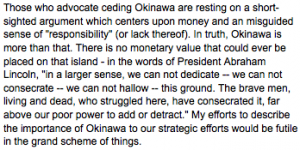For fake exit #1, see this and this.
As for the second attempt:
The last US combat troops have left Iraq, seven-and-a-half years after the US-led invasion, and two weeks ahead of President Obama’s 31 August deadline for withdrawal from the country.
The final troops to leave, 4th Stryker Brigade, 2nd Infantry Division, rolled in convoy across the border and into Kuwait this morning, officially ending combat operations which began in March 2003.
The Obama administration had pledged to withdraw troops to 50,000 by 31 August. CNN reported that according to the US military there are now 56,000 US troops in Iraq, meaning another 6,000 must leave if the US president is to meet his own deadline.
….
“By the end of this month, 50,000 troops will be serving in Iraq. As Iraqi security forces take responsibility for securing their country, our troops will move to an advise-and-assist role.
“And, consistent with our agreement with the Iraqi government, all of our troops will be out of Iraq by the end of next year.
Ah, notice that it says combat troops. The agreement being referenced is the 2008 U.S.-Iraq Status of Forces Agreement, which states:
All the United States Forces shall withdraw from all Iraqi territory no later than December 31, 2011.
KHABARI CROSSING, Kuwait — A line of heavily armored American military vehicles, their headlights twinkling in the pre-dawn desert, lumbered past the barbed wire and metal gates marking the border between Iraq and Kuwait early Thursday and rolled into history.
For the troops of the 4th Stryker Brigade, 2nd Infantry Division, it was a moment of relief fraught with symbolism but lightened by the whoops and cheers of soldiers one step closer to going home. Seven years and five months after the U.S.-led invasion, the last American combat brigade was leaving Iraq, well ahead of President Barack Obama’s Aug. 31 deadline for ending U.S. combat operations there.
Makes for a nice photo-op.
The U.S.-Iraq military pact that came into force in 2009 provides the legal basis for U.S. troops to be in Iraq. Under the agreement, all U.S. troops must be out by 2012. But U.S. negotiators say that even as the pact was being negotiated, it was considered likely it would be quietly revised later to allow a longer-term, although much smaller, force to remain.
There are currently 56,000 U.S. troops in Iraq, down from about 140,000 when Obama took office in January 2009.
With opinion polls showing Americans tired of nearly a decade of war in Afghanistan and Iraq, any decision to extend U.S. military involvement in Iraq would be enormously risky for Obama, who is up for re-election in 2012.
….
Iraq’s military commander, Lieutenant-General Babakir Zebari, caused consternation last week when he said his troops would not be ready to protect the country until 2020, and that the United States should keep its forces there until then.
And then there’s the contractors:
….the State Department is planning to more than double its private security guards, up to as many as 7,000, according to administration officials who disclosed new details of the plan. Defending five fortified compounds across the country, the security contractors would operate radars to warn of enemy rocket attacks, search for roadside bombs, fly reconnaissance drones and even staff quick reaction forces to aid civilians in distress, the officials said.
This isn’t exactly going to fool the Iraqis, so it’s clear who the intended audience is.




